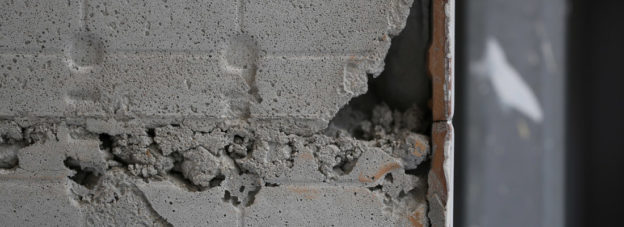In Gindel v. Centex Homes, 2018 Fla.App. LEXIS 13019, Florida’s Fourth District Court of Appeal recently concluded that the date on which the plaintiffs provided a pre-suit notice in compliance with §558.004 of Florida’s construction defect Right-to-Cure statute, Fla. Stat. §§ 558.001 to 558.005, et. seq., is the date on which the plaintiff commenced a “civil action or proceeding,” i.e. an “action,” within the meaning of Florida’s construction defect statute of repose, Florida Statue § 95.11(3)(c). Thus, reversing the decision of the trial court, the Fourth District held that the plaintiffs timely-filed their construction defect action against the defendants.
The Gindel case arises from the allegedly defective construction of a group of homes by Centex Homes. On March 31, 2004, Mr. Gindel (the lead plaintiff) as well as the other homeowners (hereinafter collectively referred to as either “plaintiffs” or “homeowners”) took possession of their homes. After discovering an alleged construction defect, the homeowners provided a pre-suit notice of defect to Centex on February 4, 2014. After being notified that Centex would not cure the defect, the homeowners filed suit on May 2, 2014, against Centex and its subcontractor, Reliable Roofing and Gutters, Inc. Upon motion, the district court dismissed the case against Centex, finding that: (1) Florida’s 10-year statute of repose applied; and (2) the plaintiffs failed to bring their action within 10 years of taking possession of their homes.
Statute of Repose
In the United States, almost all states have adopted a statute of repose in connection with improvements to real property. Similar to a statute of limitations, a statute of repose imposes a time limitation within which a plaintiff has to file suit. However, a statute of repose is different from a statute of limitations in that it can start to run even before the plaintiff’s claim arises. Accordingly, a plaintiff’s claim may be barred by a statute of repose before the plaintiff is even aware of the latent construction defect giving rise to the plaintiff’s claim.
In Florida, there is a 10-year statute of repose for claims brought in connection with an improvement to real property. Under § 95.011 of the Florida Statutes, “[a] civil action or proceeding, called “action” in this chapter… shall be barred unless begun within the time prescribed in this chapter.” That time is further defined in §95.11(3)(c) of the Florida Statutes, which states:
“An action founded on the design, planning or construction of an improvement to real property… must be commenced within 10 years after the date of actual possession by the owner, the date of the issuance of the certificate of occupancy, the date of abandonment of construction if not completed, or the date of completion or termination of the contract between the professional engineer, registered architect, or licensed contractor and his or her employer, whichever date is latest.” (Emphasis added).
In overturning the lower court’s decision, the appellate court concluded that, by including both “civil action” and “proceeding” within the definition of the term “action,” the statute contemplated that more than the filing of a civil action would satisfy the time requirement for the Statute of Repose. It further concluded that, because the Right-to-Cure statute, §558 of the Florida Statutes, sets out a series of mandatory steps that must be taken prior to bringing a judicial action, it sufficiently constituted an “action” for purposes of Florida’s Statute of Repose. Accordingly, the appellate court found that the plaintiffs, through their pre-suit notice sent on February 4, 2014, brought their “action” against Centex within 10 years of taking possession of the property. Thus, the court held that the plaintiffs were not time-barred from bringing their claims in a subsequent civil action.
This case serves as a good reminder to review the applicable statute of repose for any possible exception that may apply to your case. Additionally, it should be noted that some jurisdictions have “Right-to-Cure” statutes, which should also be reviewed prior to bringing litigation related to a construction defect.
Post-Opinion Motions
As of this writing, the parties have filed post-opinion motions related to the case, including a motion to certify the matter for appeal to Florida’s Supreme Court. Thus, the precedential value of the case, whether in the Fourth District or in other Florida appellate districts, is subject to change. Accordingly, until the Supreme Court of Florida addresses this issue, subrogation practitioners should contemporaneously file both the pre-suit notice required by Florida’s Right-to-Cure statute and a civil suit in the appropriate court. To the extent that the defendant contends that the suit is premature, a court should, pursuant to Florida Statute § 558.003, stay the suit to allow the parties time to comply with the Right-to-Cure statute.
Editor’s Note: For various reasons, the parties appealed the decision to the Supreme Court of Florida. In July of 2019, before the Florida Supreme Court could decide whether to hear the case, the Florida legislature passed legislation that effectively overruled the decision. Please read our article, Not so Fast – Florida’s Legislature Overrules Gindel’s Pre-Suit Notice/Tolling Decision Related to the Construction Defect Statute of Repose, for a more detailed discussion.


Pingback: Florida’s Fourth District Appeals Court Clarifies What Actions Satisfy Florida’s Construction Defect Statute of Repose - Advise & Consult, Inc.Advise & Consult, Inc.